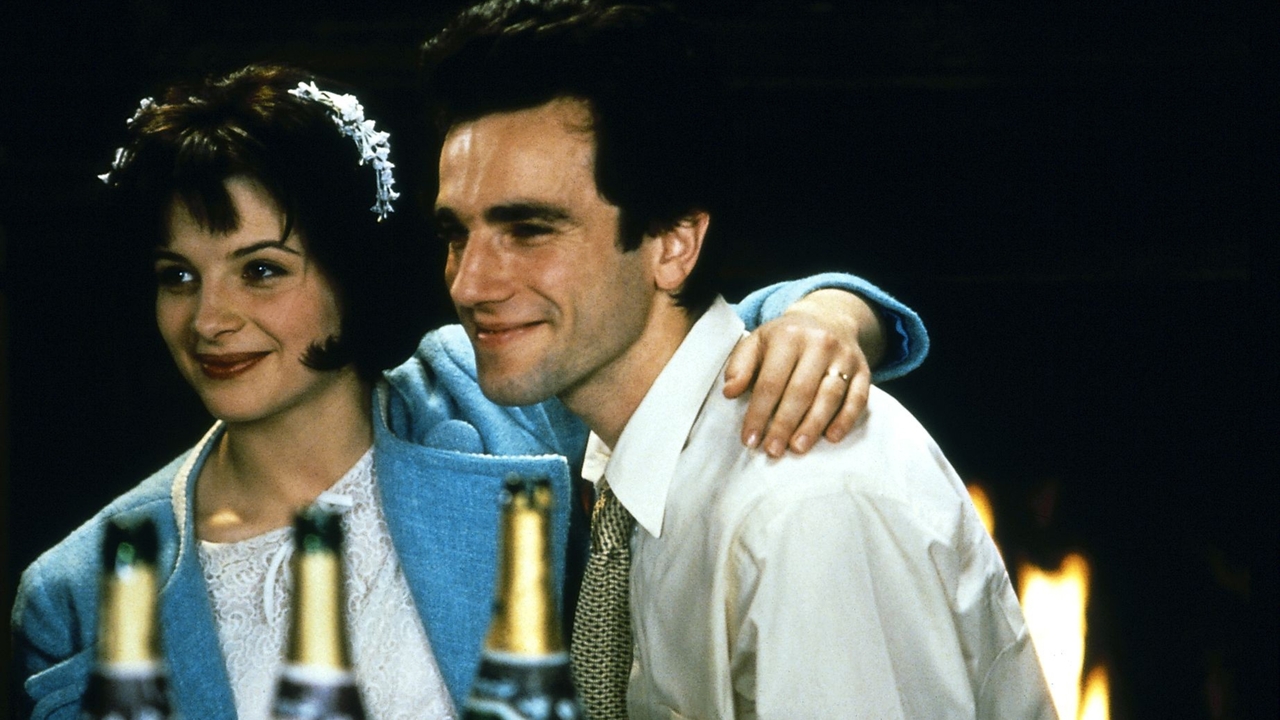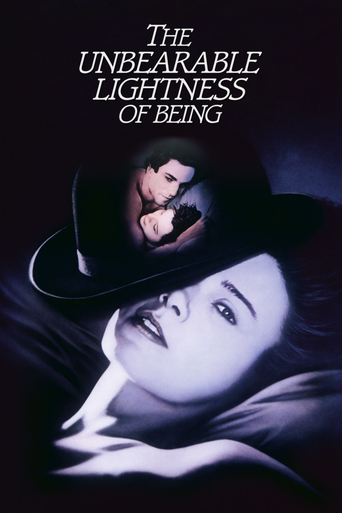WasAnnon
Slow pace in the most part of the movie.
Humaira Grant
It’s not bad or unwatchable but despite the amplitude of the spectacle, the end result is underwhelming.
Micah Lloyd
Excellent characters with emotional depth. My wife, daughter and granddaughter all enjoyed it...and me, too! Very good movie! You won't be disappointed.
Payno
I think this is a new genre that they're all sort of working their way through it and haven't got all the kinks worked out yet but it's a genre that works for me.
craig-20741
I don't know why Kunderas didn't like the movie. Maybe because the movie was actually better than the book. No spoilers, but I'll just say that there were a few subtle yet significant changes in the film that made this movie a truly moving experience.
classicsoncall
I can't tell you how many movies I've seen in which the principal characters wind up in bed together at the drop of a hat after just meeting each other. Tomas (Daniel Day-Lewis) by far had the most direct and uniquely creative approach - he asked women he was interested in to take off their clothes. And they did! Just like that. It's not a technique I've ever tried but I have my doubts that it's as simple as that. Maybe for Harvey Weinstein but look where it got him. The 'lightness' of the title was referenced a number of times in the picture and it referred to the way Tomas approached life and relationships with the opposite sex. To him, there was a 'lightness' that permeated his actions and thinking, never carrying things out to their ultimate conclusion. Whereas Tereza (Juliette Binoche) represented just the opposite, one might say the 'heavy' approach to dealing with potential romantic partners. That is, it had to mean something, and her recognition of Tomas's infidelity caused her much psychic harm - "But how can someone love without being in love?" This may be the age old question in the male/female dynamic, explored in this film as the married couple attempt to reconcile their relationship while in the midst of a corresponding affair with Tomas's worldly mistress Sabina (Lena Olin).Set against the backdrop of the Prague Spring of 1968, the political element didn't seem to be entirely necessary in the telling of the relationship story. However it did provide a measure of conflict for Tomas who was called upon to retract an earlier published piece taking the Soviet Communist regime to task for the way it dehumanized people and placed them under the thumb of an overreaching government. Notwithstanding the title of the picture, the film's resolution is anything but light in the sense that it spelled doom for the principal characters. It's perhaps the story's dramatic irony that Tomas and Tereza finally found their true happiness outside the confines of the city where they could be as free as possible to pursue life on their own terms, if only for a short while.
Armand
for the courage to adapt the Kundera novel. and for science to not be only an adaptation. for superb acting and for care to details - the black umbrellas is only an example. for delicate poetry of images and for inspired use of politic frame for reflect the nuances of lead characters. and for the message who, for a viewer from East Europe , has a fundamental sound. because is more than a story about choices, forms of love, fragility and need of the other, roots of freedom and pure joy in a dark universe. it is a perfect reflection to remember the web of past as embroidery of life crumbs. and admire the admirable manner of actors to give life to the characters shadows and lights.
justincward
Daniel Day-Lewis is a philandering Czech brain surgeon who goes on to marry naive medical receptionist -turned-photographer Juliet Binoche, but still can't stop chasing girls and still carries on with his soulmate Sabine because of their shared bowler (Derby) hat fetish. In the end, The Soviet Union's 1968 occupation of Czechoslovakia indirectly gives Daniel and Juliette's fragile relationship the boost it needed, only for tragedy to strike, in a 'Wages of Fear' kind of way. Yes, I did watch to the end.The dishy doctor's chat-up line is 'Tek off your cloze". Seems to work every time. That's about all that happens for the first few hours. We get a lot of shots of panties, then bottoms and bosoms, but still no real plot. It seems that Prague in 1968 was a seething hotbed of sexual experimentation.TULOB is a quality epic - big budget, big names, many locations, much period detail - but deadly pretentious. Daniel Day-Lewis's Tomasz is like Sam Malone from 'Cheers' with a very serious case of pathological narcissism. Juliette Binoche overacts terribly; were her character a real person everyone would constantly get very annoyed with her. Lena Olin puts in a believable turn as the exotic, possibly bisexual Sabine, who has a fling with a married man in a subplot that is completely pointless, something like her love affair.It's atmospheric, immersive, and reminiscent of a modern Dr. Zhivago - star-crossed lovers against the background of political upheaval with a tragic (and predictable) ending - but the supersoft-porn aspects are ridiculous; obviously done from a commercial imperative and nothing else. You could speculate that Juliet Binoche's wide-eyed character (raped by a Russian) symbolises the Czech republic's burgeoning yearning for freedom, but then the pseudo-intellectual police would be at your door in a flash.I knew the dog was doomed, and actually predicted the 'Tek off your cloze' line the third time - but that was half the fun. Well, I've gone on long enough, it's a shame nobody told the director Phil Kaufman after ninety minutes.

